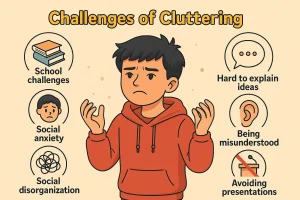Dealing with Infidelity in a Relationship: Steps to Healing
By Prapoorna M
Last Updated: August 1, 2024
Infidelity in relationships can feel like a distant issue reserved for others, but the reality is that it’s more common than many realize. In fact, research shows that 4 out of 10 marriages face infidelity at some point. If you’re reading this, chances are you or someone you care about is grappling with the intense pain and betrayal that infidelity brings. Whether it’s an emotional affair, a physical affair, or online infidelity, the effects can be devastating. However, it’s crucial to remember that healing is possible if both partners are committed to rebuilding trust.
Infidelity often feels like a devastating blow to a relationship. Feelings of betrayal, anger, grief, and confusion can overwhelm you, making it hard to see any path forward. But with time, patience, and the right steps, many couples can not only heal but also strengthen their relationship in the long run.
Understanding Infidelity
Definition of Infidelity
Infidelity is a complex issue that often differs from couple to couple. For some, it’s a clearly defined act of betrayal, while for others, it’s a more ambiguous concept. Simply put, infidelity involves breaking a promise or commitment to a partner, usually in the form of being emotionally or physically unfaithful.
Differentiating Infidelity and Adultery
- Infidelity: Refers to both emotional and physical betrayal, encompassing a broader range of behaviors that violate trust.
- Adultery: Specifically refers to engaging in physical, sexual activity outside of marriage, often considered a criminal offense in some regions.
Physical vs. Emotional Infidelity
- Physical Infidelity: Sexual acts outside of a committed relationship, such as kissing or sexual intercourse with someone other than your partner.
- Emotional Infidelity: Forming a deep, emotional connection with someone other than your partner, often including sharing intimate thoughts and feelings. This may or may not include physical contact.
Also Read: How to Overcome Infidelity in Marriage? | What if you found them guilty?
Examples of Non-Sexual and Emotional Cheating
- Sending sexual or erotic texts (sexting) to someone else
- Developing deep, intimate bonds with another person
- Maintaining profiles on dating sites or apps
- Sending nude pictures to someone
- Regular flirtation with another individual
- Imagining someone else during sex
- Hiding finances from the partner
- Hanging out with an ex-partner
Comparing Physical and Emotional Infidelity
| Aspect | Physical Infidelity | Emotional Infidelity |
|---|---|---|
| Definition | Sexual acts outside the relationship. | Deep emotional connection with another person. |
| Common Examples | – Kissing – Sexual intercourse – Oral sex – Affairs – One-night stands | – Sharing intimate feelings – Online flirting – Sexting – Secretive, intimate conversations – Deep personal bonds |
| Detection | – Easier to detect due to physical evidence. – Physical signs include changes in behavior or appearance. | – Harder to detect due to subtle emotional signs. – Often masked as close friendship or support. |
| Emotional Impact | – Betrayal – Shock – Anger – Devastation – Loss of trust | – Betrayal – Insecurity – Grief – Jealousy – Loss of self-esteem |
| Recovery Time | – May vary but often requires therapy. – Timeframe depends on the duration and depth of betrayal. | – May take longer due to deeper emotional involvement. – Usually requires long-term therapy. |
| Potential Consequences | – Divorce or separation – Loss of intimacy – Erosion of trust – Impact on mental health | – Emotional withdrawal – Resentment – Constant suspicion – Reduced intimacy |
| Prevention Strategies | – Regular communication – Physical intimacy maintenance – Clear boundaries | – Regular emotional check-ins – Open discussions about feelings – Active listening skills |
Common Causes of Infidelity
- Extended Periods of Separation
- When couples spend a significant amount of time apart due to work, travel, or family obligations, emotional or physical needs can remain unmet.
- Addiction
- Gambling, alcohol, sex, and other addictions can contribute to infidelity as partners seek solace elsewhere.
- Imbalanced Giving and Taking in the Relationship
- One partner may feel underappreciated or neglected, leading to resentment and a search for validation outside the relationship.
- Lack of Communication About Emotional and Sexual Needs
- Couples who avoid discussing their desires or fears may inadvertently create a disconnect, causing one partner to seek emotional or sexual satisfaction elsewhere.
- Major Life Changes
- Transitions like becoming parents or children leaving home can disrupt the relationship’s dynamics, leading to infidelity as a coping mechanism.
- Mental Health Conditions
- Depression, anxiety, bipolar disorder, and other mental health issues can cause impulsive or reckless behavior, including infidelity.
- Financial Issues
- Debt, unemployment, and other financial stresses can create tension in the relationship, making it easier for partners to stray.
- Personal Dissatisfaction
- Fear of conflict, fear of intimacy, and a lack of personal fulfillment can drive someone to seek satisfaction outside the relationship.
The Emotional Impact of Infidelity
Infidelity often leaves a trail of deep emotional wounds that can take months or even years to heal. Understanding these emotional responses can help you feel less alone and better equipped to navigate the healing process.
Shock, Anger, Grief, and Betrayal
- Shock
- Finding out that your partner has been unfaithful is a shock to the system.
- You might find yourself in disbelief, struggling to comprehend what has happened.
- You could feel numb, detached, or like you’re in a bad dream.
- Anger
- Once the shock wears off, anger often takes its place.
- You might feel rage toward your partner for their betrayal, or toward the person they were unfaithful with.
- Anger may also be directed inward, feeling as though you’ve failed in some way.
- Grief
- The discovery of an affair often feels like the loss of a relationship as you once knew it.
- You mourn the death of trust, the betrayal of love, and the loss of the future you envisioned.
- This grief can manifest as sadness, depression, and feelings of hopelessness.
- Betrayal
- A deep sense of betrayal may cause you to question everything you thought you knew about your partner.
- You might feel as if the relationship was a lie or that your partner has become a stranger.
Trust Issues and Broken Communication
- Trust Issues
- Infidelity shatters the foundation of trust that relationships rely on.
- The unfaithful partner’s promises and actions can be seen with suspicion.
- Rebuilding trust requires time, transparency, and consistent reassurance.
- Broken Communication
- In many cases, communication breaks down completely after infidelity is discovered.
- The betrayed partner may shut down emotionally, while the unfaithful partner could become defensive or evasive.
- Fear of conflict might lead to avoidance, resulting in unresolved issues and widening the emotional gap.
Know more: Better ways to communicate in relationships
Long-Term Emotional Impact on Both Partners
- Betrayed Partner
- Self-Esteem Issues: Infidelity often leads to self-blame and lowered self-esteem.
- Anxiety and Depression: Fear of another betrayal can cause lasting anxiety, while grief may lead to depression.
- Attachment Issues: Some partners may struggle to feel secure in future relationships.
- Unfaithful Partner
- Guilt and Shame: They may grapple with intense guilt for causing pain and shame for their actions.
- Fear of Rejection: An overwhelming fear that their partner may never forgive them or that they may be abandoned.
- Self-Loathing: They may view themselves negatively and struggle with feelings of worthlessness.
Read more: Coping with Relationship Anxiety: Techniques and Tips
Steps to Healing After Infidelity
Infidelity is a deeply painful experience, but taking the right steps can help both partners heal and rebuild their relationship.
1. Take Time Before Reacting
- Acknowledge and Process Your Emotions:
- It’s normal to feel shock, anger, and grief after discovering infidelity.
- Give yourself time and space to process your feelings before making major decisions.
- Practice Mindfulness and Emotional Regulation Techniques:
- Techniques like deep breathing, meditation, or journaling can help you stay grounded.
- Seek support from trusted friends or family members who can provide a listening ear.
- Rehearse Your Approach to the Conversation:
- When you’re ready to address the issue with your partner, rehearse what you want to say.
- Strive to be assertive rather than aggressive to facilitate constructive communication.
2. Total Separation
- The Affair Must End:
- For healing to occur, the unfaithful partner must end the affair and sever all ties with the third party.
- Any further contact should be strictly avoided to prevent ambiguity and mixed messages.
- Communicate Clearly:
- The unfaithful partner should communicate clearly to the third party that the affair is over, leaving no room for misunderstanding.
- Full commitment to the primary relationship should be reaffirmed.
3. Accept Responsibility
- Admit and Take Full Responsibility:
- The unfaithful partner must acknowledge their actions and the hurt they caused.
- Avoid shifting blame or minimizing the severity of the betrayal.
- Be Transparent and Provide Necessary Answers:
- Answer the betrayed partner’s questions honestly while avoiding unnecessary details that may cause further pain.
- Offer Sincere Apologies:
- Express genuine remorse and ask for forgiveness, understanding that it will take time.
4. Rebuild Commitment through Changes
- Reassure Your Commitment:
- The unfaithful partner should frequently reassure their commitment to the relationship.
- Demonstrate this through actions and consistent behavior.
- Demonstrate Transparency:
- Allow access to personal devices like emails and phones to rebuild trust.
- Be open about your whereabouts and daily activities.
- Make Behavioral Changes:
- Identify behaviors that contributed to the affair and work on changing them.
- For instance, improving communication or addressing emotional needs.
5. Identify and Share Needs
- Communicate Core Emotional Needs:
- Both partners should share their emotional needs, such as affection or appreciation.
- Avoid criticizing or blaming when expressing these needs.
- Use Active Listening:
- Listen to understand rather than respond.
- Validate your partner’s feelings and concerns.
- Work Together to Fulfill Each Other’s Needs:
- Develop a plan to meet each other’s needs consistently.
- Engage in activities that strengthen your bond, like date nights or shared hobbies.
6. Allow Time for Healing
- Acknowledge the Recovery Process:
- Recognize that recovery requires patience and time.
- Be prepared for emotions to fluctuate during this journey.
- Fully Commit to Healing:
- Both partners should fully commit to healing and rebuilding the relationship together.
- Seek professional help if needed, such as couples therapy or relationship coaching.
- Forgive and Move Forward:
- Forgiveness is essential but doesn’t happen overnight.
- Let go of anger and resentment, and focus on the bigger picture.
Tips for Overcoming Infidelity Pain
Healing from infidelity requires time, patience, and a dedicated effort to move past the pain. Here are some practical tips to help you navigate this journey:
1. Practice Forgiveness
- Let Go of Anger, Betrayal, and Resentment for Your Well-being:
- Holding onto negative emotions will only prolong your pain.
- Release anger and resentment to focus on your personal healing.
- Forgiveness Should Resonate Within, Not Just Spoken:
- Forgiveness is not just about words but should come from within.
- Give yourself permission to forgive when you’re ready.
2. Prepare for Negative Thoughts
- Find a Peaceful Place and Replace Negative Thoughts with Affirmations:
- Create a calming environment where you can relax and reflect.
- Whenever negative thoughts arise, replace them with positive affirmations like, “I am healing, and I deserve happiness.”
3. Avoid Using Infidelity as Ammunition
- Don’t Bring Up Past Infidelity in Future Arguments:
- Rehashing the past will keep both partners stuck in a cycle of pain.
- Focus on the present and future rather than the past mistakes.
- Allow Both Partners to Move Past the Mistake:
- Give each other the opportunity to grow and improve beyond the affair.
- Trust that you are working toward a healthier relationship.
4. Accept That You May Never Understand
- It’s Okay to Never Fully Understand the Reasons Behind Infidelity:
- Sometimes, the reasons for infidelity are complex and cannot be easily explained.
- Instead of dwelling on the “why,” focus on preventing a repeat of the mistake.
5. Don’t Seek Retribution
- Revenge Sex or Retaliatory Behavior Will Only Prolong Pain:
- Seeking revenge will only create more emotional turmoil.
- Retaliatory behavior, like revenge sex, will not bring the closure you need.
- Work on Constructive Solutions Instead:
- Focus on rebuilding your relationship through positive actions.
- Seek couples therapy or relationship coaching to facilitate healing.
Effective Tips to Overcome Infidelity Pain
| Tip | Action |
|---|---|
| Practice Forgiveness | – Release anger and resentment for your well-being. – Understand that forgiveness is a journey that takes time. |
| Prepare for Negative Thoughts | – Replace negative thoughts with positive affirmations. – Find a peaceful place to relax and practice mindfulness. |
| Avoid Using Infidelity as Ammunition | – Don’t bring up past infidelity in future arguments. – Allow both partners to move past the mistake. |
| Accept That You May Never Understand | – Focus on preventing a repeat of the mistake rather than dwelling on the past. – It’s okay to never fully understand why it happened. |
| Don’t Seek Retribution | – Work on constructive solutions instead of revenge. – Avoid retaliatory behavior like revenge sex or emotional withdrawal. |
Seeking Professional Help
After experiencing infidelity, seeking professional help can provide a structured and supportive environment for couples to heal.
Marriage Counseling
- Provides a Safe Space for Honest Communication:
- Marriage counseling offers a neutral setting where both partners can openly discuss their feelings, fears, and concerns without judgment.
- A trained therapist can help facilitate productive conversations, ensuring both partners feel heard and understood.
- Helps Both Partners Understand and Address Underlying Issues:
- Infidelity often stems from deeper relationship issues, such as unmet needs or communication breakdowns.
- Counseling can help uncover these root causes, allowing couples to work on strengthening their relationship and preventing future issues.
- Rebuilds Trust and Commitment:
- Therapists guide couples through exercises that promote transparency and consistency, helping rebuild the trust that was broken.
- Partners learn to reaffirm their commitment to each other and develop healthier ways to communicate and resolve conflicts.
Know more: Signs that You Need to Meet a Marriage Counsellor
Wellness Hub
- Offers Online Counseling Services That Can Support Couples in Healing After Infidelity:
- At Wellness Hub, you can find experienced therapists who specialize in helping couples recover from infidelity.
- Our online counseling sessions provide convenient, private support for couples navigating this challenging journey.
Conclusion
Healing after infidelity requires dedication, patience, and commitment. The journey to recovery is undoubtedly challenging, but with the right steps and a willingness to work together, couples can rebuild trust and come out stronger. Taking time before reacting, cutting ties with the third party, accepting responsibility, and practicing forgiveness can help partners find their path to healing. Seeking professional help, like marriage counseling, provides a safe space to address underlying issues and build a stronger relationship.
Trust can be rebuilt, and relationships can emerge stronger than before. Every relationship is unique, so it’s important to be patient and communicate openly with your partner. At Wellness Hub, our experienced therapists offer online counseling services to support couples on their healing journey.
Frequently Asked Questions:
1. How long does it take to heal from infidelity in a relationship?
Healing from infidelity varies widely among couples. It depends on several factors, including the depth of the betrayal, the couple’s commitment to repairing the relationship, and whether both partners are willing to participate in counseling or therapy. Typically, it can take several months to years to fully rebuild trust.
2. Can a relationship go back to normal after infidelity?
While a relationship may never return to exactly how it was before the infidelity, many couples find that working through the betrayal deepens their connection and understanding of each other. With effort and professional guidance, relationships can evolve into a new, stronger phase.
3. What are the first steps to take after discovering infidelity?
The first steps include managing the initial shock and emotions, taking time to process your feelings, and not making any immediate decisions about your relationship. It is often beneficial to seek support from a therapist who can guide the conversation and provide a neutral space for both partners.
4. Is forgiveness always the right option after infidelity?
Forgiveness is a personal choice and necessary for healing in many relationships, but it is not compulsory. The decision to forgive should come from a place of genuine understanding and readiness, not from pressure or a sense of obligation.
5. How can couples rebuild trust after infidelity?
Rebuilding trust requires consistent effort from both partners. This includes transparency from the unfaithful partner, open communication about each partner’s needs, and ongoing reassurance and commitment to the relationship. Counseling can play a crucial role in establishing new patterns of interaction and trust.
6. What role does marriage counseling play in recovering from infidelity?
Marriage counseling provides a structured environment where both partners can feel safe to express their feelings and work through the pain caused by infidelity. A qualified therapist can help identify underlying issues, facilitate communication, and guide the couple towards healing and rebuilding their relationship.
7. How can I support my partner if I am the one who committed infidelity?
Supporting your partner after committing infidelity involves taking full responsibility for your actions, cutting off all contact with the third party, being transparent in your daily life, and continuously reassuring your partner of your commitment to the relationship. Being patient and understanding towards their healing process is crucial.
8. Is it normal to feel guilty after being cheated on?
Yes, it’s normal to feel guilty after being cheated on, but it’s important to remember that infidelity is never your fault. Feelings of guilt often arise from self-doubt and overthinking, but it’s crucial to focus on your healing and recognize that the responsibility lies with the unfaithful partner.
9. How do I communicate my feelings to my partner after infidelity?
Communicating your feelings after infidelity can be challenging. It’s helpful to choose a calm time and safe space to talk without interruptions. Be honest about your emotions, use “I” statements to express yourself (e.g., “I feel hurt because…”), and listen actively to your partner’s response. If necessary, seek a therapist to facilitate the conversation.
10. What if my partner won’t talk about the infidelity or refuses counseling?
If your partner is unwilling to discuss the infidelity or refuses counseling, it can be frustrating and isolating. It’s crucial to express your desire for open communication and emphasize that talking about the issue is essential for healing. If your partner remains resistant, consider seeking individual counseling to help you process your emotions and explore your options moving forward.
About the Author:
Prapoorna Mangalampalli
M.Sc., M.A., (Dual Masters in Psychology & English) – Counselor (6+ years of experience)
Prapoorna armed with a passionate dedication fueled by dual Master’s degrees in Psychology and English, Prapoorna sheds light on and elevates human experiences. Over 6+ years of experience fuel her insightful approach to counseling, offering profound empathy and guidance across diverse areas like online, marital, relationship, child, family, and career counseling.
At Wellness Hub, she thrives in a team environment that values innovation, compassion, and achieving results for their clients.
Connect with Prapoorna to learn how she can help you or your loved one find their voice and build a brighter future.
Book your Free Consultation Today
Parent/Caregiver Info:
Client’s Details:
* Error Message








